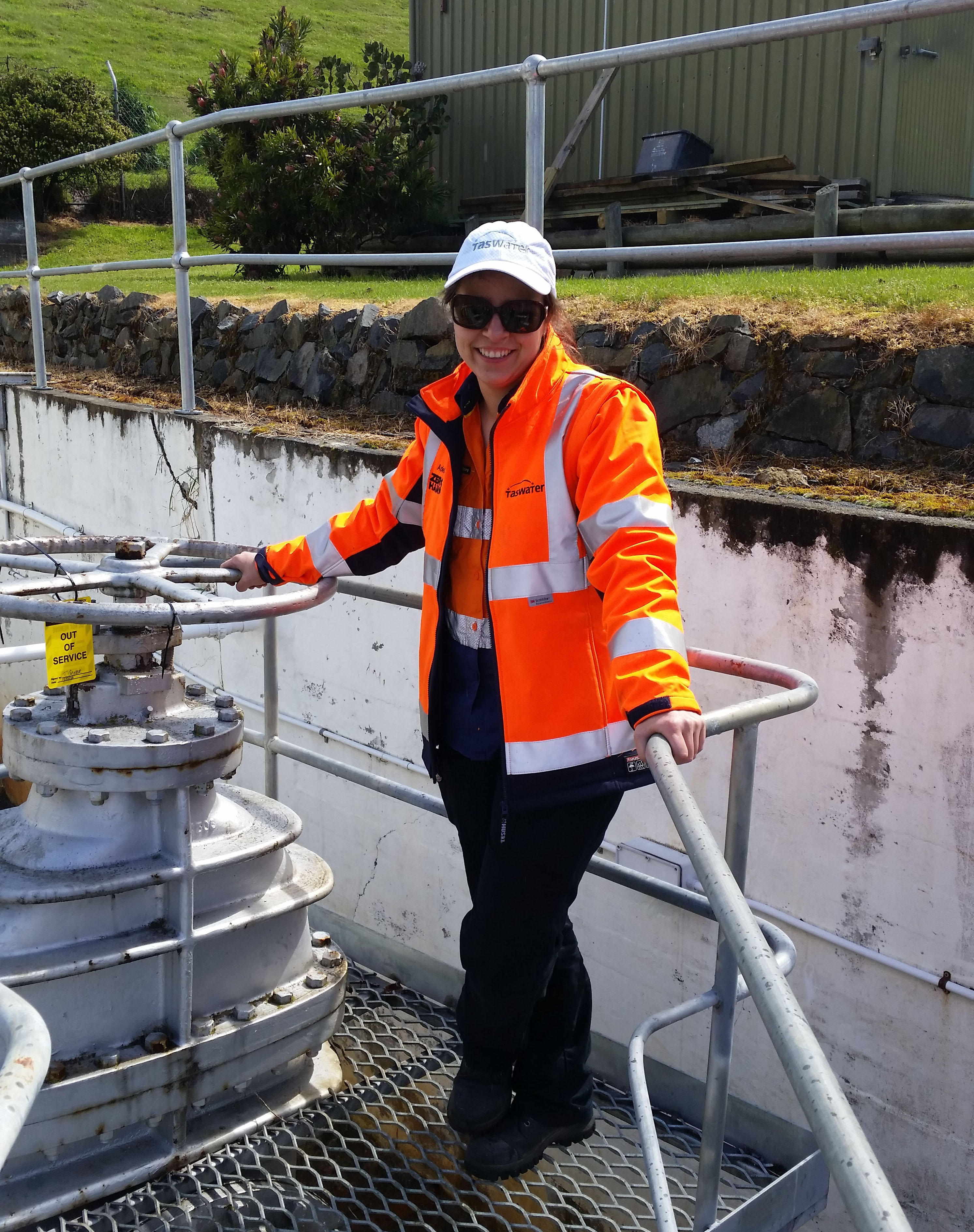The paper below, presented at the IPWEA International Public Works Conference 2019, is a case for breaking down silos by moving people around so they can learn by experience.
Senior Engineer Strategic Asset Management at TasWater, Adela Parnell, is a Young IPWEA member. She is on the IPWEA Tasmania committee, as well as being its secretary. Adela presented a session at IPWC 2019 about TasWater’s professional development initiative, where head-office workers are sent to ‘spend a day in the shoes’ of a waste water worker in the field.
Getting Out and Getting Dirty (Spend a Day in Their Shoes), by Adela Parnell
Many organisations have divisions and departments working together with varying levels of success. Office-based staff may not fully understand what it takes to operate and maintain assets. Conversely, operational departments may not fully understand decisions made by office-based staff.

Spend a Day in Their Shoes is an initiative where individuals spend time with other teams, departments or divisions. Longer experiences, in the form of fixed term secondments, can also occur. The result is a learning environment where barriers are broken down and relationships built up across the organisation. This in turn can lead to increased team performance.
Exchange experiences like these are occurring at TasWater, the state-wide water and sewerage authority in Tasmania. One example is when a primarily office-based asset management engineer spent time with the field-based bulk water distribution team. The case studies demonstrate that this can be a straightforward, easy to implement initiative with many benefits.
Spend a Day in Their Shoes is not rocket science: it is giving people practical opportunities to understand other areas of the business and make connections with people to sustain productive workplace relationships.
Short term (Spend a Day in Their Shoes)
These are experiences where individuals maintain their substantive role but spend hours or days in
another team, with the objective of learning new things:
- The participant decides the team or area to visit
- The participant and manager meet with the manager of the external team
- Expectations and objectives are discussed and agreed
- The participant’s salary does not change
Examples
- Trade waste officers spending time with sewage treatment plant operators
- Customer service officers spending time with trade waste officers
- Development services managers spending time in the call centre
- Asset management engineer in bulk operations
Long term (internal secondments)
These experiences are where individuals leave their substantive role to temporarily take on a different one within the business for a duration of up to 12 months. The purpose is to address a short-to-medium term need in the business and on conclusion the participant returns to their substantive role:
- Advertising, applications and interviews are completed as for any internally circulated role
- Secondment terms and conditions are documented and signed
- The participant’s salary may change
Examples
- Capital works program planner seconded to manager project management support services
- Asset performance engineer seconded to capital works program planner
- GIS asset information officer seconded to asset performance engineer
- Counter and correspondence staff seconded to project delivery admin support
- Billing officer seconded to revenue assurance
- Revenue assurance officer seconded to billing
Outcomes
Both experiences develop knowledge and relationships for the participant and the receiving team. Secondments have positive and lasting repercussions, with future interactions between the colleagues likely to be more open and productive. Such was the case in 2016, when an asset management engineer spent time in TasWater’s Bulk Water operations team in Hobart.
The engineer still feels the benefits of that experience three years later; not only did their knowledge of the assets increase but the relationships built resulted in a lasting and genuine willingness for all parties to answer questions and provide information.
Feedback from secondment participants and managers, in summary:
Advantages
- Career development
- learning new skills / bringing new skills
- Working with new people
- Feeling more valued
- Understanding other teams
- Fresh perspectives
- Job security if future business structure uncertain (can return to substantive role)
Disadvantages
- Uncertainty around secondment periods (when extended multiple times)
- Domino effect of backfilling positions / short-term drop in productivity
- Different team dynamics (less camaraderie in some cases)
- Can be difficult to implement new ideas in short time periods
Spending time in other teams is beneficial when knowledge is exchanged, and relationships are improved. The social connections help teams perform, in turn helping build a culture where silos are broken down and helping others is not a gift begrudgingly given. It is a cost-effective way to build knowledge and culture within organisations.